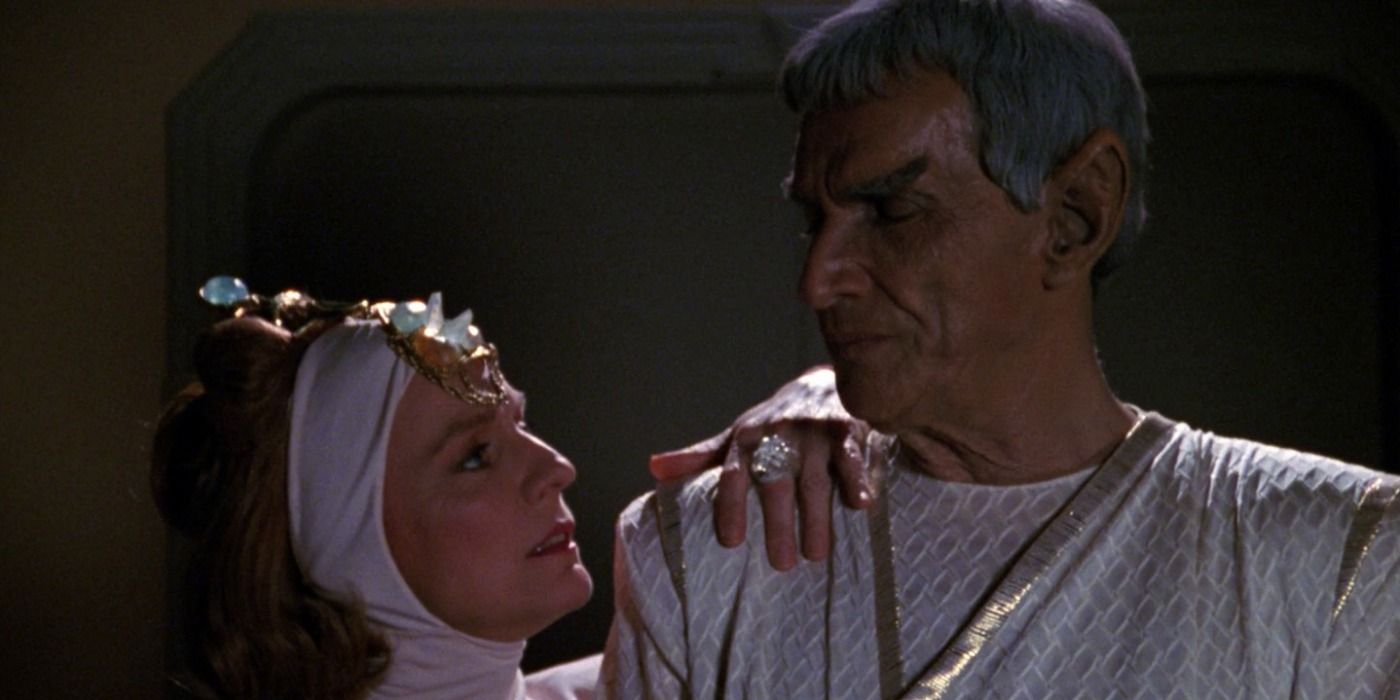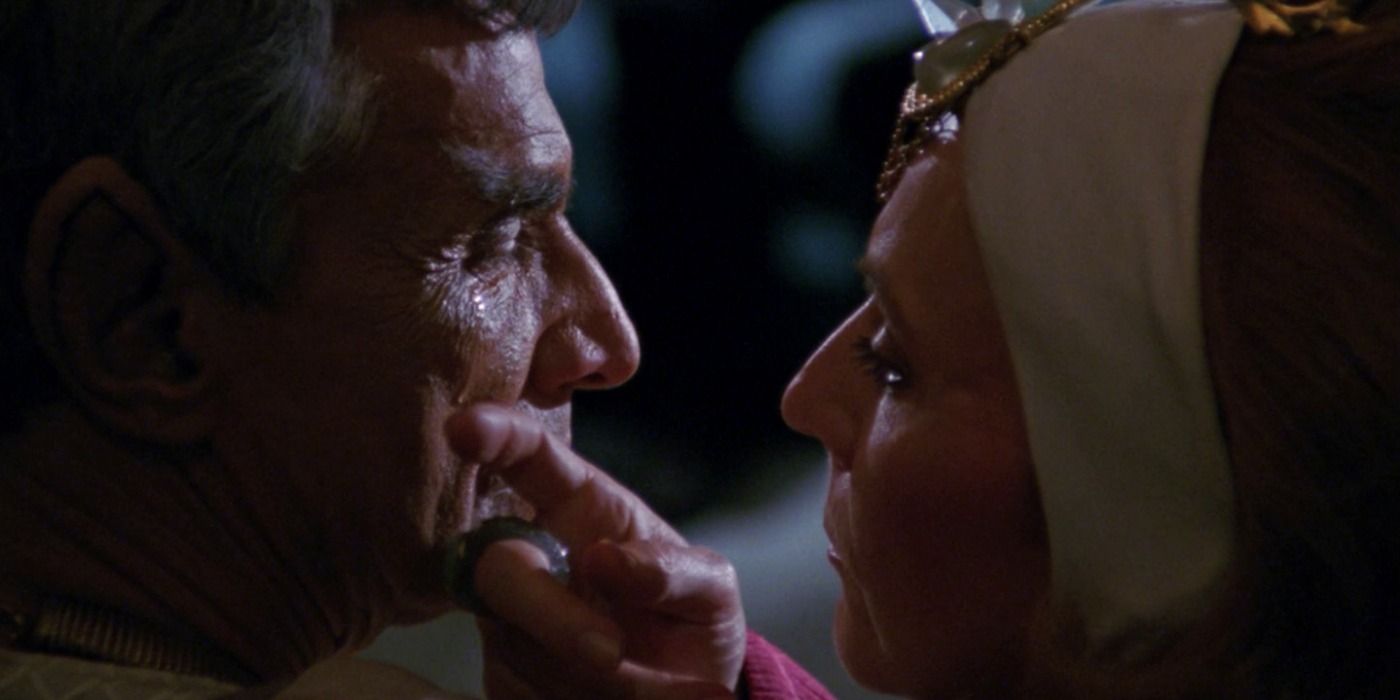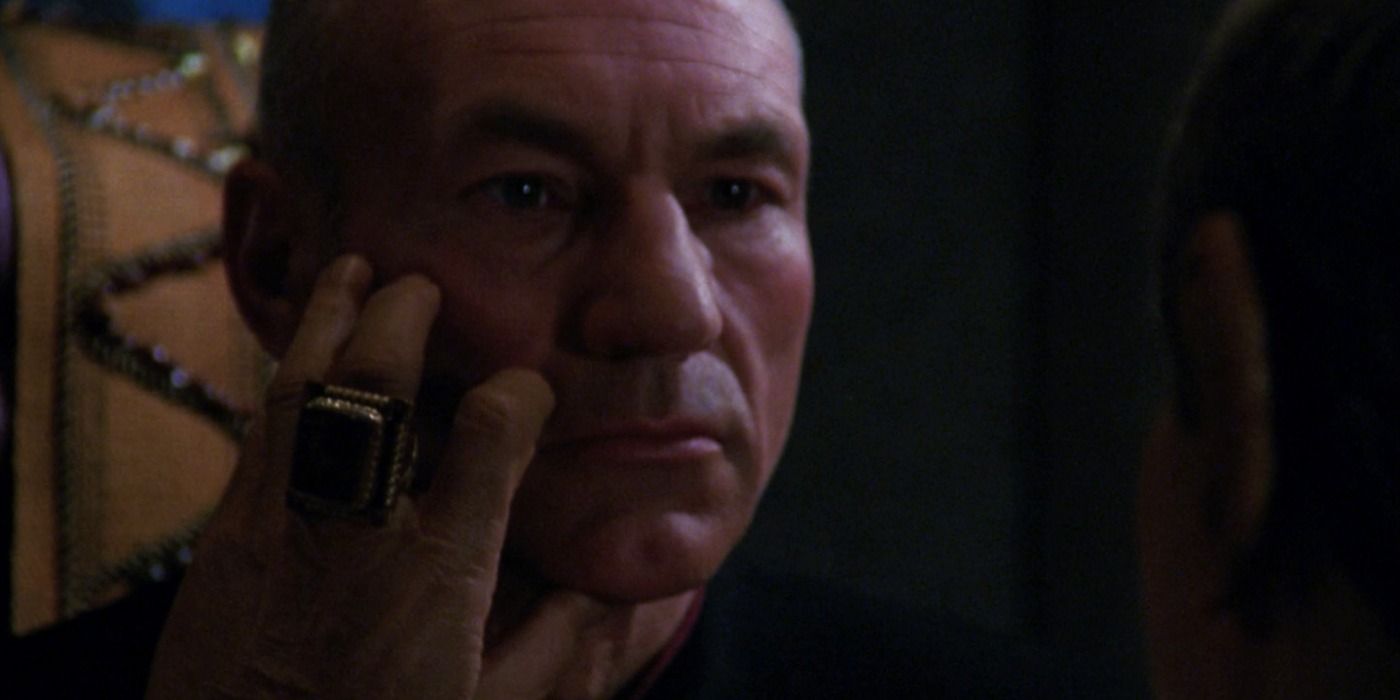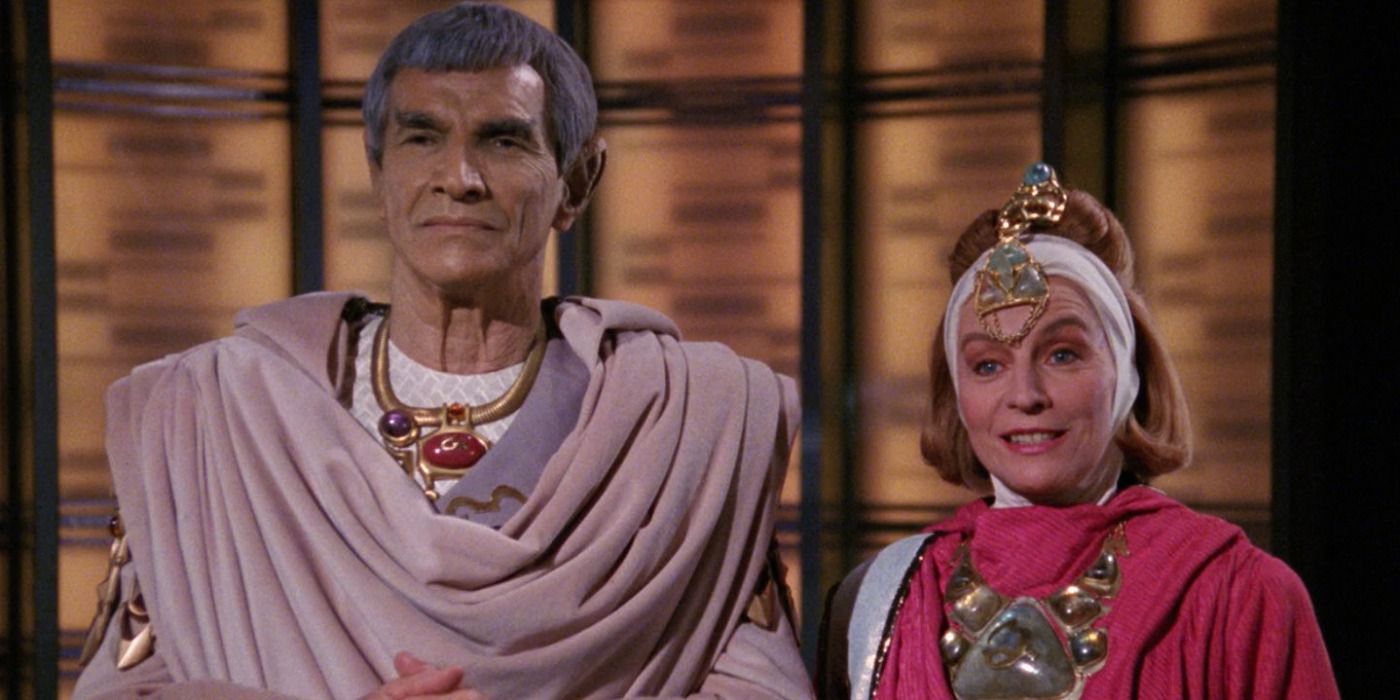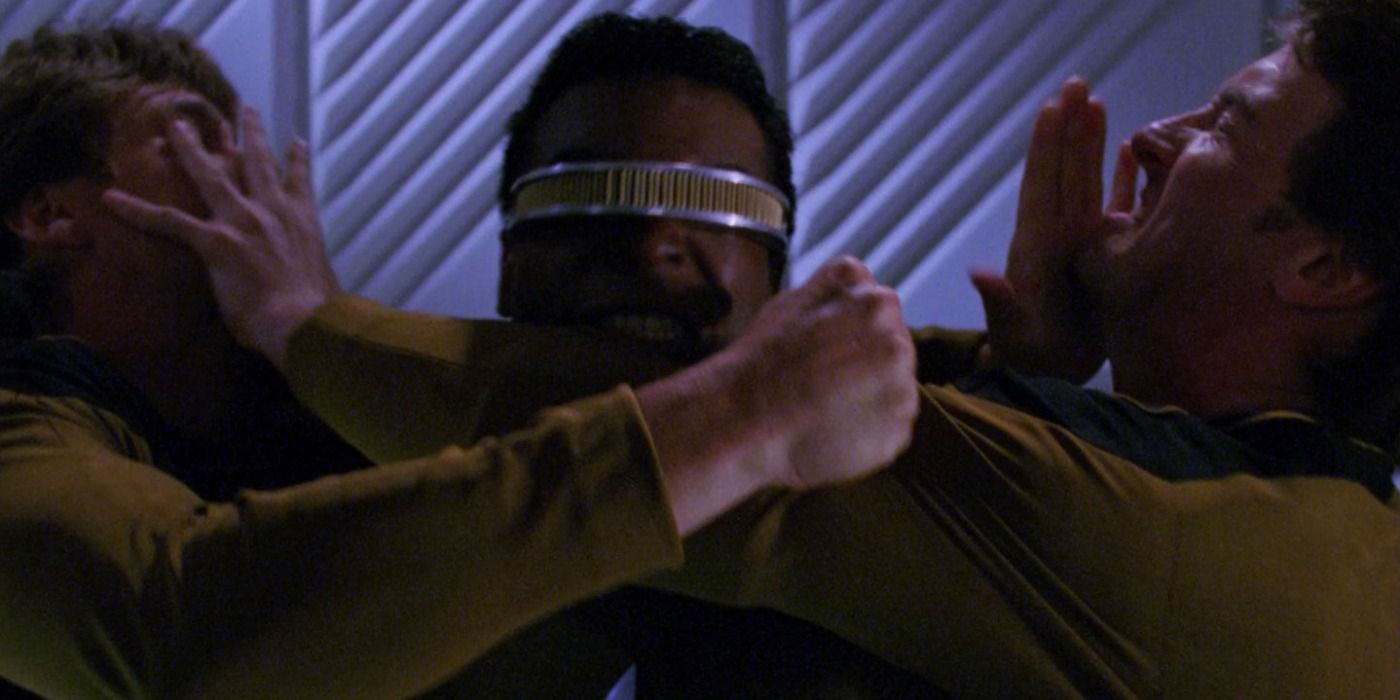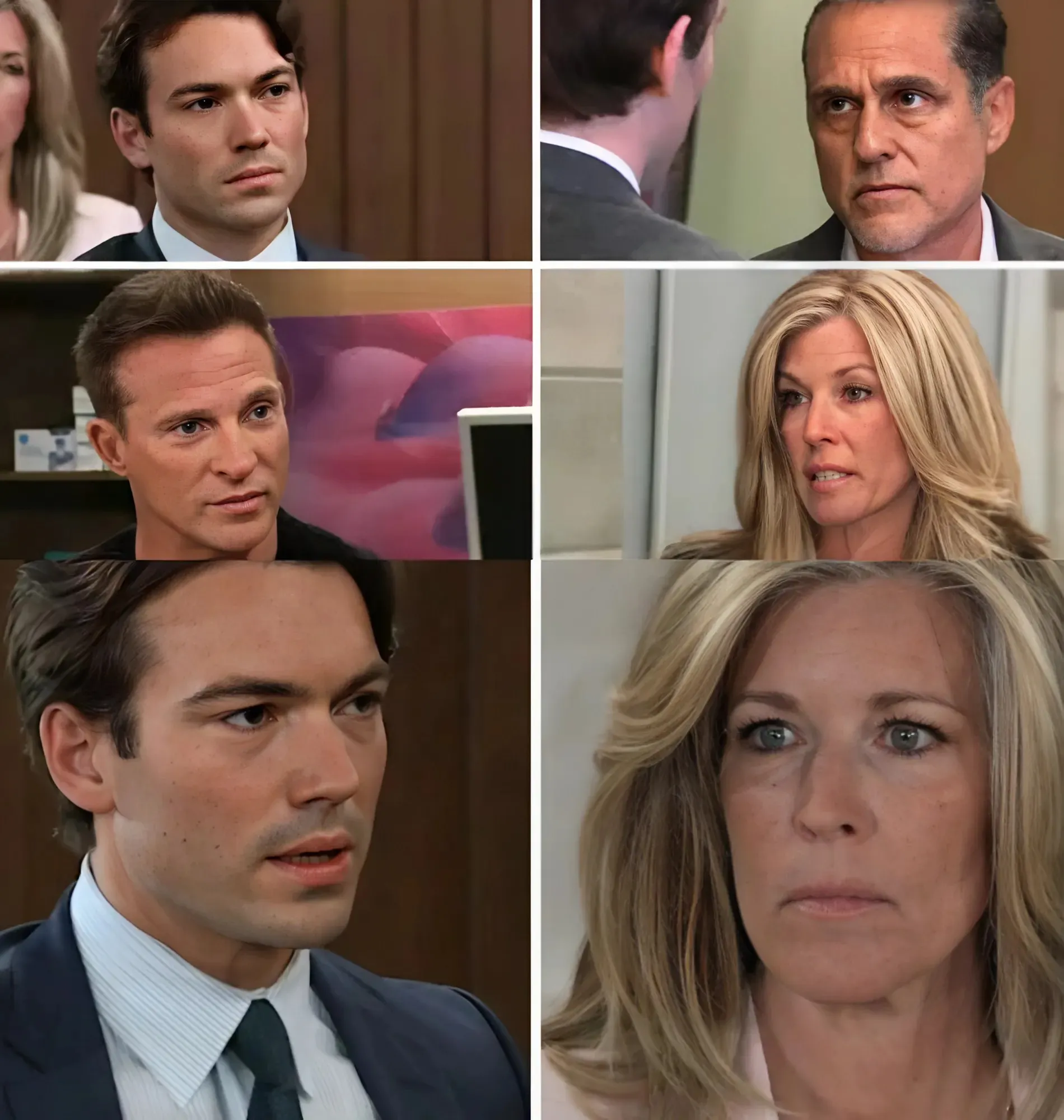Near the end of Star Trek: The Next Generation season 3, Mark Lenard returned to Star Trek as the aging Ambassador Sarek. Although Sarek had only appeared in one episode of Star Trek: The Original Series, he left quite an impression as the ever-logical Vulcan father of Spock (Leonard Nimoy). Aside from a brief cameo by DeForest Kelley in TNG's series premiere, Sarek was the first character from TOS to appear alongside Captain Picard and his crew. Sarek's presence also led to increased conflict among the Enterprise-D crew, as the Vulcan's Bendii Syndrome projected his strongest emotions.
“Sarek” Broke Roddenberry’s No TOS Characters On Star Trek: The Next Generation Rule
Sarek Is 202 Years Old When He Visits Picard's Enterprise In "Sarek"
When Star Trek: The Next Generation first began, Gene Roddenberry wanted it to separate itself from Star Trek: The Original Series by focusing on entirely different characters and new alien species. After DeForest Kelley's appearance as Admiral McCoy in TNG's premiere, Captain Kirk's adventures were rarely referenced, even when it would have made sense. After TNG had been on for two seasons, however, Roddenberry began to relax this particular rule, finally allowing a prominent character from TOS to appear on TNG. "Sarek" not only featured the return of Ambassador Sarek, but also name-dropped Spock himself.
Directed by Les Landau and with a teleplay written by novelist Peter S. Beagle, "Sarek" tells a simple story that sees Ambassador Sarek visit the USS Enterprise-D to negotiate a historical trade agreement between the Federation and the Legarans. When crew members aboard the Enterprise begin experiencing strange bursts of emotion, Dr. Beverly Crusher (Gates McFadden) determines that Sarek is suffering from Bendii syndrome, a degenerative neurological disease that sometimes affects elderly Vulcans. Mark Lenard delivers a brilliant performance as he struggles to accept the truth of his condition.
“Sarek” Broke Roddenberry’s No Conflict Among Star Trek: The Next Generation’s Crew Rule
Sarek's Emotions Wreak Havoc On The Enterprise Crew
Sarek returns in Star Trek: The Next Generation season 5, episode 7, "Unification, Part I," in which he finally succumbs to his illness.
These outbursts of emotion culminate in an all-out brawl in Ten Forward that finds Enterprise officers tossing one another over the bar and through glass tables. When Commander William Riker (Jonathan Frakes) tries to intervene, he gets punched in the face for his troubles. Captain Picard eventually goes to Sarek with his concerns, but it takes some convincing for the elderly ambassador to accept the truth. In the end, the conflict created by Sarek's emotions has no lasting consequences, as the crew members understand they were not in complete control of their actions."Sarek" found a clever way to introduce some conflict into Star Trek: The Next Generation, even if things returned to normal by the episode's end.

